You are using an outdated browser. Please upgrade your browser to improve your experience.


Health & Nursing
Courses and certificates.
- Bachelor's Degrees
- View all Business Bachelor's Degrees
- Business Management – B.S. Business Administration
- Healthcare Administration – B.S.
- Human Resource Management – B.S. Business Administration
- Information Technology Management – B.S. Business Administration
- Marketing – B.S.
- Accounting – B.S. Business Administration
- Finance – B.S.
- Supply Chain and Operations Management – B.S.
- Communications – B.S.
- User Experience Design – B.S.
- Accelerated Information Technology Bachelor's and Master's Degree (from the School of Technology)
- Health Information Management – B.S. (from the Leavitt School of Health)
- View all Business Degrees
Master's Degrees
- View all Business Master's Degrees
- Master of Business Administration (MBA)
- MBA Information Technology Management
- MBA Healthcare Management
- Management and Leadership – M.S.
- Accounting – M.S.
- Marketing – M.S.
- Human Resource Management – M.S.
- Master of Healthcare Administration (from the Leavitt School of Health)
- Data Analytics – M.S. (from the School of Technology)
- Information Technology Management – M.S. (from the School of Technology)
- Education Technology and Instructional Design – M.Ed. (from the School of Education)
Certificates
- Supply Chain
- Accounting Fundamentals
- Digital Marketing and E-Commerce
Bachelor's Preparing For Licensure
- View all Education Bachelor's Degrees
- Elementary Education – B.A.
- Special Education and Elementary Education (Dual Licensure) – B.A.
- Special Education (Mild-to-Moderate) – B.A.
- Mathematics Education (Secondary)– B.S.
- Science Education (Secondary Chemistry) – B.S.
- Science Education (Secondary Physics) – B.S.
- Science Education (Secondary Biological Sciences) – B.S.
- Science Education (Secondary Earth Science)– B.S.
- View all Education Degrees
Bachelor of Arts in Education Degrees
- Educational Studies – B.A.
Master of Science in Education Degrees
- View all Education Master's Degrees
- Curriculum and Instruction – M.S.
- Educational Leadership – M.S.
- Education Technology and Instructional Design – M.Ed.
Master's Preparing for Licensure
- Teaching, Elementary Education – M.A.
- Teaching, English Education (Secondary) – M.A.
- Teaching, Mathematics Education (Secondary) – M.A.
- Teaching, Science Education (Secondary) – M.A.
- Teaching, Special Education (K-12) – M.A.
Licensure Information
- State Teaching Licensure Information
Master's Degrees for Teachers
- Mathematics Education (K-6) – M.A.
- Mathematics Education (Middle Grade) – M.A.
- Mathematics Education (Secondary) – M.A.
- English Language Learning (PreK-12) – M.A.
- Endorsement Preparation Program, English Language Learning (PreK-12)
- Science Education (Middle Grades) – M.A.
- Science Education (Secondary Chemistry) – M.A.
- Science Education (Secondary Physics) – M.A.
- Science Education (Secondary Biological Sciences) – M.A.
- Science Education (Secondary Earth Science)– M.A.
- View all Technology Bachelor's Degrees
- Cloud Computing – B.S.
- Computer Science – B.S.
- Cybersecurity and Information Assurance – B.S.
- Data Analytics – B.S.
- Information Technology – B.S.
- Network Engineering and Security – B.S.
- Software Engineering – B.S.
- Accelerated Information Technology Bachelor's and Master's Degree
- Information Technology Management – B.S. Business Administration (from the School of Business)
- User Experience Design – B.S. (from the School of Business)
- View all Technology Master's Degrees
- Cybersecurity and Information Assurance – M.S.
- Data Analytics – M.S.
- Information Technology Management – M.S.
- MBA Information Technology Management (from the School of Business)
- Full Stack Engineering
- Front End Web Developer with CodeSignal
- Java Developer with CodeSignal
- ServiceNow Application Developer
- Data Analytics Skills
- Artificial Intelligence (Single Course)
3rd Party Certifications
- IT Certifications Included in WGU Degrees
- View all Technology Degrees
- View all Health & Nursing Bachelor's Degrees
- Nursing (RN-to-BSN online) – B.S.
- Nursing (Prelicensure) – B.S. (Available in select states)
- Health Information Management – B.S.
- Health and Human Services – B.S.
- Psychology – B.S.
- Health Science – B.S.
- Public Health – B.S.
- Healthcare Administration – B.S. (from the School of Business)
- Nursing Leadership
- Nursing Education—Post-Master's Certificate
- Nursing Leadership and Management—Post-Master's Certificate
- Family Nurse Practitioner—Post-Master's Certificate
- Psychiatric Mental Health Nurse Practitioner —Post-Master's Certificate
- View all Health & Nursing Degrees
- View all Nursing & Health Master's Degrees
- Nursing – Education (BSN-to-MSN Program) – M.S.
- Nursing – Leadership and Management (BSN-to-MSN Program) – M.S.
- Nursing – Nursing Informatics (BSN-to-MSN Program) – M.S.
- Nursing – Family Nurse Practitioner (BSN-to-MSN Program) – M.S. (Available in select states)
- Nursing – Psychiatric Mental Health Nurse Practitioner (BSN-to-MSN Program) – M.S. (Available in select states)
- Nursing – Education (RN-to-MSN Program) – M.S.
- Nursing – Leadership and Management (RN-to-MSN Program) – M.S.
- Nursing – Nursing Informatics (RN-to-MSN Program) – M.S.
- Master of Healthcare Administration
- Master of Public Health
- MBA Healthcare Management (from the School of Business)
- Business Leadership (with the School of Business)
- Supply Chain (with the School of Business)
- Accounting Fundamentals (with the School of Business)
- Digital Marketing and E-Commerce (with the School of Business)
- Java Developer (with CodeSignal and the School of Technology)
- Front End Web Developer (with CodeSignal and the School of Technology)
- Full Stack Engineering (with the School of Technology)
- ServiceNow Application Developer (with the School of Technology)
- Data Analytics Skills (with the School of Technology)
- Artificial Intelligence (Single Course with the School of Technology)
- Nursing Leadership (with the Leavitt School of Health)
- Single Courses
Apply for Admission
Admission requirements.
- New Students
- WGU Returning Graduates
- WGU Readmission
- Enrollment Checklist
- Accessibility
- Accommodation Request
- School of Education Admission Requirements
- School of Business Admission Requirements
- School of Technology Admission Requirements
- Leavitt School of Health Admission Requirements
Additional Requirements
- Computer Requirements
- No Standardized Testing
- Clinical and Student Teaching Information
Transferring
- FAQs about Transferring
- Transfer to WGU
- Transferrable Certifications
- Request WGU Transcripts
- International Transfer Credit
- Tuition and Fees
- Financial Aid
- Scholarships
Other Ways to Pay for School
- Tuition—School of Business
- Tuition—School of Education
- Tuition—School of Technology
- Tuition—Leavitt School of Health
- Your Financial Obligations
- Tuition Comparison
- Applying for Financial Aid
- State Grants
- Consumer Information Guide
- Responsible Borrowing Initiative
- Higher Education Relief Fund
FAFSA Support
- Net Price Calculator
- FAFSA Simplification
- See All Scholarships
- Military Scholarships
- State Scholarships
- Scholarship FAQs
Payment Options
- Payment Plans
- Corporate Reimbursement
- Current Student Hardship Assistance
- Military Tuition Assistance
WGU Experience
- How You'll Learn
- Scheduling/Assessments
- Accreditation
- Student Support/Faculty
- Military Students
- Part-Time Options
- Virtual Military Education Resource Center
- Student Outcomes
- Return on Investment
- Students and Gradutes
- Career Growth
- Student Resources
- Communities
- Testimonials
- Career Guides
- Skills Guides
- Online Degrees
- All Degrees
- Explore Your Options
Admissions & Transfers
- Admissions Overview
Tuition & Financial Aid
Student Success
- Prospective Students
- Current Students
- Military and Veterans
- Commencement
- Careers at WGU
- Advancement & Giving
- Partnering with WGU
Master of Education
Education Technology & Instructional Design Master's
Earn a versatile education technology and instructional design degree online.
The global pandemic has created an urgency for design teams to deliver next-generation solutions at a breakneck pace. In various domains including K-12, higher education, and workforce development, these teams are tasked with creating engaging and immersive virtual learning experiences that can substitute for on-ground instruction.
This master’s program was built from the ground up to help those involved in instructional design gain an updated skill set, preparing them to meet the unique needs of each student within today’s new learning environment. The program incorporates design thinking, learning analytics, and universal design and accessibility.
Choose Your Track
The Master of Education in Education Technology and Instructional Design is offered in two tracks: the K-12 pathway and the Adult Learner pathway. These tracks allow students to specify if they are hoping to implement their knowledge in an academic or educational setting, or in a corporate setting. The courses in the K-12 pathway setting focuses on working with students in an educational setting, while the Adult pathway focuses on corporate training and adult education. Candidates may choose to complete both pathways if desired. Your career goals will ultimately help you determine which pathway is best for you.

62% of graduates finish this program within
WGU lets you move more quickly through material you already know and advance as soon as you're ready. The result: You may finish faster.
*WGU Internal Data
Tuition per six-month term is
Tuition charged per term—rather than per credit—helps students control the ultimate cost of their instructional design degree. Finish faster, pay less!
Average salary increase
School of Education graduates report an average salary increase of $10,916 after completing their WGU degree.
Ready to Start Your WGU Journey?
Next Start Date: {{startdate}}
Start Dates the 1st of Every Month
Education Technology and Instructional Design Courses
Program consists of 12 courses
At WGU, we design our curriculum to be timely, relevant, and practical—all to help you show that you know your stuff.
This graduate-level educational technology degree is tightly aligned with employer-desired skills for instructional designers. The program offers two tracks: the K-12 pathway and the Adult Learner pathway. Candidates may choose to complete both pathways if desired.
The WGU MEd Education Technology and Instructional Design program was designed (and is regularly updated) with input from the experts on our Education Program Council , as well as ISTE and ATD standards. These respected authorities know exactly what it takes for a graduate to lead a staff of educators, administrators, and support personnel in K-12, higher education and corporate education settings.
This program comprises the following courses. You will typically complete them one at a time as you make your way through your program, working with your Program Mentor each term to build your personalized Degree Plan. You’ll work through each course as quickly as you can study and learn the material. As soon as you’re ready, you’ll pass the assessment, complete the course, and move on. This means that you can finish as many courses as you're able in a term at no additional cost.
Learning Experience Design Foundations I provides an introduction to the field of learning experience design (LxD) and the role of the learning experience designer, which combines best practices from the fields of instructional design and user experience design, with the goal of creating human centered, goal-oriented learning experiences. This first of two foundational courses introduces Design Thinking and instructional design models, processes, and approaches. This course demonstrates how learning theories and instructional frameworks can be applied to facilitate deep learning, motivation, and engagement. This course also teaches the process for analyzing learners and their needs, as well as defining the instructional problem and goals. There are no prerequisites for this learning experience design course.
Learning Experience Design Foundations II is the second of two foundational courses that provide the foundational knowledge and skills learning experience designers need to create human-centered, goal-oriented learning experiences. Continuing to the third, fourth, and final phases of the Design Thinking Process, this course teaches the process and importance of ideation as well as rapid prototyping. It includes techniques for creating e-learning storyboards, which communicate content plans and instructional design strategies and “look and feel” mockups, which incorporate visual design principles and usability best practices. Finally, this course introduces usability testing methods and provides guidelines for planning usability tests for e-learning solutions. Learning Experience Design Foundations I is a prerequisite for this course.
Assessment and Learning Analytics focuses specifically on applying assessment and learning analytics practices to gauge learner progress through e-learning products. This course is an introduction to assessment models, including competency and skills-based methods, as well as culturally responsive and Universal Design for Learning (UDL) approaches in assessment, rubric, and feedback design. Finally, this course introduces learning analytics, specifically how they can add an additional layer of validation and visibility on learner progress.
Learning Technology provides opportunities for learners to research emerging learning technologies and see how they are changing current teaching and learning practices. This course also teaches strategies for evaluating learning technologies and their ability to facilitate deep learning and help learners achieve their learning goals, as well as their ability to accommodate learner differences and ensure access for all learners. This course covers techniques that learning experience designers can use to implement technology safely, legally, and ethically in a variety of environments. Additionally, this course explores the types of learning analytics that various technologies generate and the ways in which they can be used to better understand learner progress and optimize the learning experience.
Learning Experience Design Lab requires learners to apply foundational learning experience design strategies to create an instructional solution in the form of an e-learning module. In the course, learners will identify an instructional problem and then design and develop a functional prototype of an e-learning solution. Learning Experience Design Lab provides an environment for learners to apply foundational knowledge and skills, experiment with various e-learning design tools and techniques, provide helpful quality feedback to peers, and receive quality feedback from peers about their own e-learning module. Finally, Learning Experience Design Lab teaches the importance of obtaining user feedback and incorporating that feedback to continuously improve the learning experience. Degree-seeking learners must complete the Learning Experience Design foundations series and two pathway courses prior to completing this course.
Identifying Learner Needs and a Research Problem is the first of three capstone courses in the program. This course provides an introduction to design-based research and focuses specifically on the first two phases of the design-based research process: identifying and analyzing the learning problem and reviewing the literature. This course also requires that learners continue applying Design Thinking as they empathize with learners and define the instructional problem that their research will help them understand and address. Finally, this course teaches learners how to conduct a literature review to determine what research has already been done and what is unknown about their research topic. Learning Experience Design Lab is a prerequisite for this course.
Developing an E-Learning Solution and Research Methodology is the second of three capstone courses in the program. This course focuses on the next two phases of the design-based research process: designing and developing an e-learning solution and designing a research methodology to test how well the solution addressed the instructional problem. This course also requires that learners continue applying Design Thinking as they ideate potential solutions to the instructional problem and begin prototyping a module of instruction. Finally, this course teaches learners how to design research studies that ensure the safety of human subjects and the ethical collection, storage, and reporting of data. The course Identifying Learner Needs and a Research Problem is a prerequisite for this course.
Implementing and Evaluating E-Learning Solutions is the third of three capstone courses in the program. This course focuses on the final steps of the Design-Based Research process: implement, test, refine, reflect, and report. This course also requires that learners continue applying Design Thinking as they test and refine the solution identified during the prototyping phase. The course requires learners to test and refine their implementation strategies, use data to evaluate the effectiveness of their e-learning solution, redesign or enhance their e-learning design based on their interpretation of the data, and summarize their design-based action research study. Developing an E-Learning Solution and Research Methodology is a prerequisite for this course.
Designing and Facilitating E-Learning Experiences for K–12 Students is the first of two courses in the K-12 Learning Designer pathway. This course teaches skills needed to plan units of study that leverage virtual settings and achieve academic standards while promoting digital citizenship. This course provides strategies for explaining essential concepts and demonstrating examples for students in K–12 virtual settings. It also provides strategies for using technology to facilitate meaningful collaboration among K–12 students. Finally, this course explains how to design effective practice and assessment opportunities for K–12 students in virtual settings and provides strategies for ensuring students get the feedback they need to improve learning. Learning Technology is a prerequisite for this course.
Quality and Impact of K–12 E-Learning Solutions is the second of two courses in the K–12 Learning Designer pathway. This course provides an introduction to the challenges K–12 students face in e-learning environments. It also directs learners to professional and academic resources where they can find current research related to issues and innovations learning experience designers implement to solve challenges to K–12 students in e-learning environments. This course also outlines a quality framework for evaluating e-learning solutions for K–12 students and provides opportunities for learners to apply that framework. Lastly, this course provides examples of how learning analytics can be used to determine the impact of e-learning for K–12 students. Through this course, learners will analyze data about K–12 learners to determine the impact an e-learning solution has had on engagement, effort, and learning. This course teaches learners how insights gained from data about K–12 learners can be used to optimize e-learning. Designing E-Learning Experiences for K–12 students is a prerequisite for this course.
Designing E-Learning Experiences for Adults is the first of two courses in the adult learning designer pathway. This course teaches best practices for supporting adult learners as they acquire knowledge and learn new skills and dispositions. This course explains effective approaches to designing learning experiences for adult learners that are collaborative, experiential, and transformative in nature. This course also explores problem-based and competency-based approaches to designing learning experiences for adults. Each evidence-based approach is defined and supported by theory and research. The course also includes best practices for designing each type of learning experience and provides real examples of each approach. Learning Technology is a prerequisite for this course.
Quality and Impact of Adult E-Learning Solutions is the second of two courses in the Adult Learning Designer pathway. This course introduces the issues learning experience designers often encounter when designing e-learning experiences for adults. It also directs learners to resources about current research related to issues and innovations in designing online learning experiences for adults. This course also outlines a quality framework for evaluating e-learning solutions for adults and provides opportunities for learners to apply that framework. Lastly, this course provides examples of how learning analytics can be used to determine the impact of e-learning solutions for adults. Learners will analyze dashboard data and determine the impact an e-learning solution has had on learner engagement, effort, and learning and how insights gained from data about learners and the learning experience can be used to optimize learning and the environments in which it occurs. Designing E-Learning Experiences for Adults is a prerequisite for this course.
Capstone Project
Special requirements for this program
WGU's online master's degree program in education technology and instructional design requires the successful completion of a capstone project. You'll take what you've learned during your studies and apply it to a real-world situation, proposing a solution to an actual issue you're likely to face in a professional environment.
Skills For Your Résumé
As part of this program, you will develop a range of valuable skills that employers are looking for.
- Communications: Developed clear, concise, and organized written communications.
- Research: Developed evidence-based processes rooted in research findings, enhancing the effectiveness and efficiency of educational initiatives.
- Detail Oriented: Identified key areas for improvement in a project, leading to expected outcomes and project success.
- Applied an instructional design model, resulting in well-defined and engaging learning activities.
- Modeled solutions for instructional projects, enhancing the overall effectiveness of the learning experiences.
- Presentations: Demonstrated effective presentation skills in both physical and online settings.
“Working on a master's degree through WGU was amazing. I loved working on my own time and schedule, especially since I have a full-time job. My mentor and class instructors were always helpful and proactive in reaching out. The classwork was relevant to my degree. I feel like the classwork was difficult but doable. I would highly recommend WGU to anyone who is working toward a degree WGU offers.”
—Rebecca Hanson Teachers College Graduate
WGU vs. Traditional Universities Compare the Difference
Traditional Universities
TUITION STRUCTURE
Per credit hour
Flat rate per 6-month term
Schedule and wait days or even weeks to meet with one of many counselors
Simply email or call to connect with your designated Program Mentor who supports you from day one
Scheduled time
Whenever you feel ready
Professor led lectures at a certain time and place
Courses available anytime, from anywhere
TIME TO FINISH
Approximately 2 years, minimal acceleration options
As quickly as you can master the material, can finish programs in under 2 years
You Aren't On Your Own
WGU has Program Mentors who work with you from the day you start, all the way through graduation. They help you chart your courses, answer your questions, and ensure you can go through your program. You're not alone when you choose an online degree at WGU.
Flexibility You Need
Students choose WGU for their online degree program because of its flexibility. Whether you already have a full-time job, have responsibilities as a parent, or just have a busy schedule, WGU can work for you.
Strong Alumni Network
When you enroll in an online master's degree program at WGU, you join an impressive network of teachers.
Accredited, Respected, Recognized™
One important measure of a degree’s value is the reputation of the university where it was earned. When employers, industry leaders, and academic experts hold your alma mater in high esteem, you reap the benefits of that respect. WGU is a pioneer in reinventing higher education for the 21st century, and our quality has been recognized.

COST & TIME
When We Say Affordable We Mean It
By charging per six-month term rather than per credit—and empowering students to accelerate through material they know well or learn quickly—WGU helps students control the ultimate cost of their degrees. The faster you complete your program, the less you pay for your degree.
A Master's Degree Within Reach
There is help available to make paying for school possible for you:

The average student loan debt of WGU graduates in 2022 (among those who borrowed) was less than half* the national average.

Most WGU students qualify for financial aid, and WGU is approved for federal financial aid and U.S. veterans benefits.

Many scholarship opportunities are available. Find out what you might be eligible for.
* WGU undergraduate students have approximately half the debt at graduation compared to the national average, according to the Institute for College Access and Success (2022).
FLEXIBLE SCHEDULE
Education That’s Truly at Your Own Pace
What makes WGU uniquely flexible? We allow you to finish courses as quickly as you can show competence. You do so by passing assessments instead of sitting in class for a set number of weeks. At WGU, there are no rigid class schedules, no set log-in times, and no hard deadlines set by professors. Rather, you work with your Program Mentor to create a Degree Plan that works with your busy life. Want to take a test at 2 AM? At WGU it’s possible. Earn a career-focused education on your time.
"While getting my degree I was faced with learning how to teach from home, and help my own children adapt to learning online because of our pandemic. I love how WGU was flexible and I was able to breeze through courses when I knew the information and take my time on the ones I needed to.”
—Rachel Hink Teachers College Graduate

CAREER OUTLOOK
A Master’s in Education Technology Paves the Way to the Next Step in Your Career as an Educator
The education landscape is changing rapidly, whether it be in the K-12, higher education, or corporate training space. An increased demand for online education and a greater appetite for custom-tailored and individualized education has created an urgency in the new and expanding field of educational technology. As demand continues to grow, these industries need skilled professionals with a deep understanding of the education technology and instructional design disciplines.
This Master of Education in Education Technology and Instructional Design offers two pathways depending on your desired area of expertise. One prepares you to develop educational programs, methods, and curriculum for K-12 students, while the other is more focused on readying you to provide the same, but in areas including higher education and workforce development. A master’s degree program will help you gain the skills needed to improve learning experiences and play a part in the evolving future of education.
Return on Your Investment
On average, wgu graduates see an increase in income post-graduation.
Average income increase from all degrees in annual salary vs. pre-enrollment salary. Source: 2023 Harris Poll Survey of 1,655 WGU graduates.
Survey was sent to a representative sample of WGU graduates from all colleges. Respondents received at least one WGU degree since 2017.
There is a need for training and development specialists in the corporate world with demand projected to increase by 12% through 2033.
Learn About All the Opportunities in Education Technology and Instructional Design
With a master’s degree in education technology and instructional design you could be prepared for the following jobs, depending on your industry of focus.
- Instructional coordinator
- Instructional designer
- Curriculum developer
- Instructional technologist
- Instructional developer
- Educational technologist
- Learning designer
- Director of eLearning
- Learning Engineer
- Learning architect
- Instructional design coordinator
- Distance education administrator
- Academic technologist
- Learning Experience Designer
Higher Education
- Director of Learning Experience Design
- Academic technologist
- Distance education administrator
- Director of instructional design
- Online course designer
- Online course developer
- Learning Architect
Corporate Training
- Multimedia producer
- Training and development specialist
- Instructional technology specialist
- Director of Learning Experience Design
- Director of instructional design
- eLearning Designer/Developer
ADMISSIONS & TRANSFER INFO
Master in Education Technology and Instructional Design Admission Requirements
To enroll in this program, you must be in possession of a bachelor's degree from an appropriately accredited institution and be interested in advancing your expertise in education technology and instructional design.
You will also need access to a community of learners. This community of learners will be the focus of your capstone project at the end of your program and other assessments throughout your program, and you will need to identify this group during your first term.
Transfer Credits
Get Your Enrollment Checklist
Download your step-by-step guide to enrollment.
Get Your Questions Answered
Talk to an WGU Enrollment Counselor.
More About the MEd in Education Technology and Instructional Design
- More About This Degree
Do I have to be a teacher to pursue this master’s degree?
No. You do not have to be a teacher to pursue WGU’s Master of Education in Education Technology and Instructional Design. In fact, the program is built to provide knowledge and skills not only to teachers but also to individuals planning to work in other fields like corporate training.
What background do I need to have for this program?
You can have any bachelor's degree and be working in any sector to pursue this Master of Education in Education Technology and Instructional Design. In fact, the program is built to provide knowledge and skills to any individuals planning to work on training, curriculum, instruction, and more.
Does WGU offer financial aid?
WGU is approved to offer federal student aid . You will need to apply using the FAFSA, which is used to determine your eligibility for aid. WGU’s FAFSA school code is 033394.
Are there scholarships available?
Scholarships are available for new WGU students and returning graduates. This video shows more about scholarship opportunities and how they can help you pay for school. Get information on:
- How to apply
- Eligibility requirements
- Examples of scholarships
- What happens after you apply
- Other financial aid options
How does tuition work at WGU?
WGU's tuition is a flat rate that is charged every six months. You can take as many courses as you are able in that six-month term—with no extra cost. You simply pay for the term and do as much work as you can or want to during that time. This means that finishing faster helps you save money—a major benefit you won't find at most other schools.
The University
For students.
- Student Portal
- Alumni Services
Most Visited Links
- Business Programs
- Student Experience
- Diversity, Equity, and Inclusion
- Student Communities
Online Master’s in Educational Technology Programs
BestColleges.com is committed to delivering content that is objective and actionable. To that end, we have built a network of industry professionals across higher education to review our content and ensure we are providing the most helpful information to our readers.
Drawing on their firsthand industry expertise, our Integrity Network members serve as an additional step in our editing process, helping us confirm our content is accurate and up to date. These contributors:
- Suggest changes to inaccurate or misleading information.
- Provide specific, corrective feedback.
- Identify critical information that writers may have missed.
Integrity Network members typically work full time in their industry profession and review content for BestColleges.com as a side project. All Integrity Network members are paid members of the Red Ventures Education Integrity Network.
Explore our full list of Integrity Network members.
Educational technology, or edtech, is the use of technology in education. Edtech has become increasingly important due to advances in computers and the widespread use of online classes.
Emerging technologies, including artificial intelligence and virtual reality, also have the potential to influence future education methods.
A master’s in educational technology online allows you to learn about existing and emerging technologies and how to apply those technologies in a classroom setting. If you are interested in educational technology, the following page discusses popular online programs, related costs, and prospective career paths.
Learn about start dates, transferring credits, availability of financial aid, and more by contacting the universities below.
Popular Master’s in Educational Technology Online Programs
We chose to highlight the following schools based on several factors, including top position in organic or paid search results (as of October 2023), relevancy of program offerings, and categorization as a nonprofit. These programs are listed alphabetically by school and not weighed against each other in our methodology.
Fairfield University
- Private university in Connecticut
- MA in Educational Technology
- 30 credits | $895/credit
Fairfield’s master’s in educational technology online program offers enrollees the opportunity to obtain first-hand experience creating digital learning materials. Attendees must complete a capstone project, which emphasizes real-world applications.
Louisiana State University (LSU)
- Public university in Louisiana
- MA in Education: Educational Technology
- 36 credits | $459 /credit
LSU offers a completely online master of arts in educational technology degree, which teaches technology integration, digital transformation, and academic innovation via technology. Holders of certain educational technology certifications can earn up to nine credit hours toward the program.
Oklahoma State University (OSU)
- Public university in Oklahoma
- MS in Educational Technology
- 36 credits | $489-$530 /credit
Oklahoma State offers an MS in educational technology with two concentration options. The educational technology option focuses on instructional design and the impact of technology while the school library media option focuses on libraries, databases, and online learning. Graduates of the school library media program earn an Oklahoma school library media specialist certification.
University of Michigan-Dearborn (UM-Dearborn)
- Public university in Michigan
- 30 credits | $506-632 /credit
UM-Dearborn’s online master’s in educational technology teaches students how to develop online classes, create technology-based learning activities, and keep up-to-date with emerging technologies. Attendees with a valid Michigan teaching certificate can concurrently pursue an educational technology endorsement.
University of Texas Rio Grande Valley (UTRGV)
- Public university in Texas
- M.Ed. in Educational Technology
- 30 credits | $473-$883 /credit
UTRGV’s M.Ed. in educational technology focuses on the theory, research, and application of the edtech field. Enrollees can simultaneously earn a graduate certificate in e-learning, technological leadership, or online instructional design.
Master’s in Educational Technology Overview
If you enroll in a master’s in educational technology program, you will learn about digital transformation and technology integration in a classroom setting. You will also learn critical skills including technologies used for instructional design, real-world instructional problems, and the elements of an online learning environment .
Schools may award different degrees for master’s in educational technology programs, including MA, MS, and M.Ed. Each program will vary depending on school, offering different specializations and coursework.
How long does an online master’s in educational technology take?
Full-time master’s in educational technology programs can take 12-24 months, depending upon curriculum and course load per term. These programs typically consist of 30-36 credit hours of courses. Part-time students typically take the same courses, but complete the program in 16-24 months.
How much does an online master’s in educational technology cost?
You can expect to pay a total of $15,000-$26,000 for a master’s in educational technology online. According to the National Center for Education Statistics, the average online master’s in education program costs $8,155 annually.
Program tuition price may vary based on the school’s reputation, number of courses, and student-to-teacher ratio.
Does Accreditation Matter for Online Educational Technology Master’s Programs?
Institutions with institutional accreditation have received recognition as a school that meets a certain standard of education. Schools must be institutionally accredited for federal financial aid eligibility.
Specific programs within accredited institutions can also receive programmatic accreditation . Programs in the field of education do not necessarily require specialized accreditation, but it can represent further approval from a third-party agency.
Educational technology programs that lead to licensure or endorsement may be accredited by the following agencies:
- Council for the Accreditation of Educator Preparation (CAEP)
- Association for Advancing Quality in Educator Preparation (AAQEP)
What Can You Do With a Master’s in Educational Technology?
If you graduate from a master’s in educational technology online program, you can pursue careers in fields including education, business, government, and the military. Any industry with a need for training or educating with technology can utilize the skills you learned in the master’s program.
In the education field, careers may include classroom teacher, computer instructor, or media specialist, while in the business field, careers can include corporate trainer, consultant, or project manager.
Some educator roles, such as those in the K-12 public school system, may require you to hold a state-issued license or certification.
Is a Master’s in Educational Technology Worth It?
If you have a passion for teaching and technology, then an online master’s degree in educational technology may be worth pursuing.
The master’s program will help you learn the essential skills to pursue advanced roles in educational technology . Some sought-after roles, including instructional coordinators, usually require a master’s degree.
You may stand out from peers in a competitive job market with a master’s degree in educational technology. Companies will see your education level, which may provide additional credibility for your skills. This will allow you to pursue additional career paths or potentially increase your salary.
Note: The insights on this page — excluding school descriptions — were reviewed by an independent third party compensated for their time by BestColleges. Page last reviewed April 30, 2024.
Explore More College Resources

What Is Educational Technology?
Educational technology enhances learning and teaching in the classroom through games, in-class polls, or and other forms of tech.

by Evan Castillo
Updated April 5, 2024

Considering a Master’s in Education? Follow These 5 Steps Before Choosing a Program
Considering a master’s in education? Follow these five steps to choose the right program for your career goals, whether online or in person.

by Margaret Weinhold
Updated April 10, 2024

What Courses Will You Take in a Master’s in Education Program?
Education master’s students gain in-depth knowledge about learning processes and leadership. Learn more about master’s in education courses.

by Juliann Scholl, Ph.D.
Updated March 13, 2024
Top Online Master's Programs in Educational Technology

Holland Webb
Contributing Writer
Learn about our editorial process .
Updated July 28, 2023
Daniella Ramirez
Contributing Editor
BestCollegeReviews.org is an advertising-supported site. Featured or trusted partner programs and all school search, finder, or match results are for schools that compensate us. This compensation does not influence our school rankings, resource guides, or other editorially-independent information published on this site.
Are you ready to discover your college program?
Why Get a Master's Degree in Educational Technology?
A master's degree in educational technology equips teachers and trainers with the skills to create student-centered, technology-rich learning environments . K-12 teachers, school administrators, higher education staff members, corporate trainers, and curriculum designers may benefit from this degree.
These programs are designed to teach enrollees to sharpen their critical thinking skills, evaluate curriculum plans, and incorporate technology into educational environments. Courses often cover the principles of instructional design, modern technology learning tools, and skills for teaching K-12 or adult learners. Graduates may work in formal education settings or as multimedia scriptwriters and educational consultants.
Most educational technology programs require 30-36 credits and take 18-24 months. Accelerated programs, which typically offer courses on rotating eight-week schedules, may take less time. Find out more about which educational technology master's degree may be right for you with the guide below.
Popular Online Programs
Learn about start dates, transferring credits, availability of financial aid, and more by contacting the universities below.
Online Master's Programs in Educational Technology
Many schools offer online master's programs in educational technology. These degrees prepare educators and specialists to create and enhance tech-based learning experiences. Graduates with a master's in educational technology may work in academic or corporate settings. Online programs can help working professionals continue their careers while furthering their education.
Our guide lists the top online master's degrees in educational technology. Read on for information about costs, common classes, and how to become an educational technologist.
We use trusted sources like the National Center for Education Statistics to inform the data for these schools. BestCollegeReviews.org is an advertising-supported site. Featured or trusted partner programs and all school search, finder, or match results are for schools that compensate us. This compensation does not influence our school rankings, resource guides, or other editorially-independent information published on this site. from our partners appear among these rankings and are indicated as such.
#1 Top Online Master’s Programs in Educational Technology
North Carolina State University
- Raleigh, NC
- Online + Campus
Programmatic Accreditation: Council for the Accreditation of Educator Preparation
Avg. Cost per Credit: In-State | $525 Out-of-State | $1,635
Credits to Graduate: 30 credits (M.Ed.) or 36 credits (MS)
NC State offers two online master's degrees in learning technology : a 30-credit M.Ed. and a 36-credit MS. The M.Ed. focuses on classroom and school-based theories and learning models, while the MS includes a research component. Both programs can prepare future digital leaders and learning professionals.
Students can emphasize design, digital leadership, or inquiry in their curriculum. Teachers currently licensed in North Carolina to add the technology specialist endorsement to their licenses after completing either program. Each applicant needs a minimum 3.0 GPA.
#2 Top Online Master’s Programs in Educational Technology
Ashland University
- Ashland, OH
Avg. Cost per Credit: In-State | $620 Out-of-State | $620
Credits to Graduate: 30
This private university in Ohio offers an online M.Ed. in curriculum and instruction: educational technology . Students take courses such as instructional design for technology integration; organization and transformational change through technology; and social, cultural, and political aspects of technology use in the education of all students.
The program concludes with a capstone project or a master's thesis. Current Ohio teachers who complete this degree can add the computer/technology endorsement to their state licenses. Ashland does not require GRE scores.
#3 Top Online Master’s Programs in Educational Technology
The University of Texas Rio Grande Valley
- Edinburg, TX
Avg. Cost per Credit: In-State | $458 Out-of-State | $458
Credits to Graduate: 30 credits
Located in Brownsville, Texas, UTRGV provides an online M.Ed. in educational technology to equip K-12, corporate, military, and higher education leaders with the skills to apply modern technology to the classroom.
Each enrollee completes five core courses, five electives, and an internship. Options include the theory and practice of e-learning, along with technology leadership. In addition to the master's degree, UTRGV allows students to pursue one or more certificates in e-learning, technology leadership, or online instructional design. An applicant needs a minimum 3.0 GPA to qualify.
#4 Top Online Master’s Programs in Educational Technology
Georgia State University
- Atlanta, GA
Avg. Cost per Credit: In-State | $398 Out-of-State | $1,259
Credits to Graduate: 36 credits
Georgia State's MS in instructional design and technology prepares graduates to lead dynamic learning experiences. Course topics include instructional systems theory, learning environments, and various types of media. Each student also completes a three-credit internship.
This four-semester program requires synchronous learning in web conferencing sessions that begin as early as 4:30 a.m. Eastern time. Applicants should submit official transcripts and letters of recommendation. The program does not lead to certification by the Georgia state teacher credentialing agency.
#5 Top Online Master’s Programs in Educational Technology
Framingham State University
- Framingham, MA
Avg. Cost per Course: In-State | $1,260 Out-of-State | $1,260
Students in FSU's M.Ed. concentration in educational technology can employ research-based principles to explore instructional design using technology. The curriculum includes three core courses, two required concentration classes, and several electives. Options include introduction to assistive technology, mathematics instruction with technology, and technology in the second language classroom.
The program does not lead to Massachusetts state educator licensure or endorsement. Graduates may, however, work in K-12, higher education, or corporate training environments. Each candidate must hold a 2.8 or higher GPA and have access to a formal learning environment.
#6 Top Online Master’s Programs in Educational Technology
Indiana University of Pennsylvania-Main Campus
- Indiana, PA
Avg. Cost per Semester: In-State | $5,645 Out-of-State | $8,100
This Indiana, Pennsylvania-based university offers an online MA in education, training, and instructional technology . Students can complete the degree through part-time or full-time enrollment and may study independently online or through synchronous video conferencing. The curriculum covers seven core courses, a research course, and either a thesis or an internship.
Courses include designing accessible and inclusive instruction, digital pedagogy, and advanced instructional design. Certified Pennsylvania teachers can add an instructional technology specialist endorsement after completing this program. Each applicant must submit official transcripts.
#7 Top Online Master’s Programs in Educational Technology
Ottawa University-Online
Avg. Cost per Credit: In-State | $499 Out-of-State | $499
Kansas-based OU features an online master's in learning technologies . This degree supports educators who aspire to use high-level teaching methods to make instruction effective and efficient. The curriculum covers 12 credits of core courses and 18 credits of concentration courses, including a practicum.
Students can enroll in games and simulations in education, emerging trends in learning technologies, and teaching and learning at a distance. Applicants need GPAs of 3.0 or higher, and new courses begin every eight weeks.
#8 Top Online Master’s Programs in Educational Technology
Florida Atlantic University
- Boca Raton, FL
Avg. Cost per Credit: In-State | $372 Out-of-State | $1,030
FAU's master's degree in instructional technology prepares graduates to implement modern technology in learning-positive environments. Each enrollee completes 15 credits of core courses, six credits in research and statistics, and a nine-credit concentration track in instructional design or educational technology leadership. The program concludes with a field experience in educational technology.
Graduates may work in higher education, K-12 settings, or corporate training environments. An applicant needs either a GPA of 3.0 or better in all upper-level courses or minimum GRE scores of 154 (verbal) and 144 (quantitative).
#9 Top Online Master’s Programs in Educational Technology
SUNY at Albany
Avg. Cost per Credit: In-State | $533 Out-of-State | $627
As a part of New York's statewide university system, UAlbany offers an online master of science in curriculum development and instructional technology . The program includes courses in educational and social thought, along with human development and learning.
Each applicant needs a minimum 3.0 GPA. Candidates who hold initial New York state teaching certification should inquire with the state office about how this program may help them obtain state professional teacher certification.
#10 Top Online Master’s Programs in Educational Technology
University of North Dakota
- Grand Forks, ND
Avg. Cost per Credit: In-State | $499 Out-of-State | $798
Credits to Graduate: 34-36 credits
Students in UND's master of science in instructional design and technology can prepare for careers as training designers and developers. Courses include human performance design, instructional design consulting, and an internship.
The program offers two options for the concluding project: a master's thesis for prospective Ph.D. students or a scholarly project for future practitioners. Classes meet synchronously in the evenings. Each applicant needs either a minimum undergraduate GPA of 2.75 or a minimum GPA of 3.0 in all junior/senior-level courses.
How Much Does a Master's in Educational Technology Degree Cost?
According to the National Center for Education Statistics , the average annual cost of graduate tuition was $19,749 in the 2020-21 school year.
Many variables impact the actual price you pay as a student: For instance, public institutions typically cost less than private ones, and in-state schools often charge residents less than out-of-state schools. Online programs may offer lower tuition than in-person degrees, and asynchronous classes enable learners to continue working as they complete coursework.
A master's in educational technology typically takes 18-24 months to complete. In addition to tuition, some courses may require you to purchase textbooks, hardware, or software.
Courses in Educational Technology
Most educational technology degrees require 30-36 credits. Courses cover topics such as educational theory, learning technology, and instructional design. Students sharpen their skills in design thinking, learning analytics, accessibility, and technology ethics.
Some programs offer specialization tracks like K-12 learning design, adult learning design, technology leadership, and online instructional design. These tracks include concentration courses like designing e-learning experiences for adults or K-12 e-learning solutions. In some programs, students pursue a general master's in education with a specialization in educational technology.
While each school offers their own curriculum, the courses listed below are a representative sample of typical educational technology classes.
Technology Leadership
Technology leadership equips teachers and trainers with the tools they need to design, implement, and assess technology-based learning experiences. The course explores creating technology-integrated curriculum, developing technology-enriched instruction, and mentoring others in the use of educational technology. Enrollees also explore the theoretical and practical applications of technology-infused learning.
Designing Learner-Centered Environments
Effective learner-centered environments can integrate an array of technology teaching tools. This course focuses on the roles of the teacher and the student in a learner-centered setting. Topics may include a discussion of available technologies, how to incorporate those technologies into the curriculum, and methods of evaluating their effectiveness.
Educational Games and Simulations
Both 2D and 3D educational games and simulations play a critical role in effective teaching and learning. In this course, learners explore how to design, deliver, and evaluate instructional activities in virtual worlds. Topics include perspectives on play, theories of gaming and learning, and the mechanics of gaming.
Career and Salary Outlook for Educational Technology
Educational technology is a versatile degree that can help you qualify for a variety of careers in education, corporate, and tech settings. The list below provides a brief overview of job options available to professionals with a master's degree in educational technology. Some roles may require additional credentials like a doctorate, state licensure, or professional certifications.
How to Become an Educational Technologist
Most educational technologists need at least a bachelor's degree, though some employers may prefer master's degrees, especially for advanced roles.
Note that many master's programs in this field do not prepare graduates for state teaching certification. To work in classrooms, educational technologists usually need to fulfill state board of education requirements like student teaching and licensure exams.
Educational technology professionals who seek jobs in the business field do not need teaching certification. These workers can gain hands-on experience through internships.
Frequently Asked Questions About Educational Technology
What can you do with an educational technology degree.
With an educational technology degree, you can work in K-12 or higher education, human resources, or curriculum development. Careers in these fields include teacher, director of corporate training, multimedia scriptwriter, instructional technology specialist, or manager of organizational development.
What are the benefits of getting a master's in educational technology?
A master's in educational technology can sharpen your leadership, technology, and critical thinking skills. This degree can help you qualify for educational technologist roles at educational institutions. Graduates can also pursue jobs as trainers or educational technologists in corporate and government settings.
Do I need a license for educational technology?
To serve as an educational technologist in a public K-12 classroom, you may need a teaching license or technology endorsement. Check your state laws to determine requirements for your jurisdiction. If you plan to work as a trainer in government, business, nonprofit, or healthcare, you do not need a license to practice educational technology.

What is the difference between educational technology and instructional technology?
For some experts in the field, "educational technology" and "instructional technology" are synonymous terms. Others, however, believe educational technology encompasses theories of learning, while instructional technology focuses on educational processes.
Schools may use the phrases interchangeably, or they may use "educational technology" when talking to K-12 teachers and "instructional technology" when talking to trainers in other fields.
Page last reviewed June 27, 2023. All rankings and school descriptions on this page were created and reviewed independently by the BCR Rankings Team.
Recommended Reading
Top 25 Online Master's in Educational Technology Programs for 2019

Earning an online educational technology degree prepares students to become innovators in the field. Job responsibilities include guiding a school’s integration of technology into its curriculum and coaching teachers on how to use learning tools. The Bureau of Labor Statistics projects more job opportunities to become available, with the industry growing by 8% over the next ten years.
What are the Best Online Master's in Educational Technology Programs?
- Collapse All
How to Choose an Online Master's in Educational Technology Program
The typical online educational technology degree takes about a year and a half to two years of full-time coursework to complete. Some online master's in instructional technology programs require student to enroll part time or full time and complete courses as part of a cohort or individually. It's important to choose an online master's in instructional technology program that offers concentrations or a curriculum that represents your career or personal goals.
Online master's in instructional technology tuition varies by school. Colleges commonly charge the same tuition as on-campus programs or offer a discounted, online tuition. The cost per credit ranges from $500 per credit to over $1,000. Many online master's in instructional technology programs are offered completely online, but some do have on-campus requirements, which include week-long intensives and proctored exams. Common courses include information architecture, instructional design fundamentals, and cognitive science.
Careers for Graduates of Master's in Educational Technology Programs
Instructional designer, curriculum developer, instructional technologist, training and development manager, user experience designer, job outlook and salary for graduates of educational technology master's degrees.
The employment opportunities available with an online educational technology degree falls under a number of different fields, which includes education, training, library occupations, and business. The data below reflects reflects these industries. Business and financial and education, training, and library occupations are projected to grow 8% from 2014 to 2024. Location and career level affects your expected salary.
Salary Growth by Experience for Graduates of Educational Technology Master's Programs
A master's in educational technology online increases the earning potential of employees in the education field, including instructional designers and curriculum developers. The highly specialized skills developed in an online master’s in instructional technology programs warrants a greater salary, with management roles earning the largest amount over time. Many roles in the elearning industry are increasingly home based, which allows workers to save on commuting costs.
To determine the best online Master's in Educational Technology programs, we looked at the most important factors prospective students, mainly common predictors of future success and a school's commitment to online programs. This boils down to admissions rate, student loan default rate, retention rate, graduation rate, and the percent of students enrolled in online classes. All data points are taken from information provided by colleges and universities to the National Center for Education Statistics.
Each factor is weighted evenly in order to give an objective view and determine the best online Master's in Educational Technology programs. To calculate our rankings, we looked at a school's ranking when organized by a single factor, and then averaged each category's ranking to find an overall score: Admissions Rate (20%) + Default Rate (20%) + Retention Rate (20%) + Graduation Rate (20%) + Percent of Students Enrolled in Online Classes (20%) = Final score.
Top 30 Most Affordable Master’s in Educational Technology Degrees Online

In this article, we profile the top 30 most affordable online master’s in educational technology degree programs.
Instructional coordinators, according to the United States Department of Labor’s Bureau of Labor Statistics, work in elementary, secondary, and college settings. They oversee school curriculums and aid in the development, coordination, and assessment of instruction materials. Nearly all jobs in educational technology require a master’s degree. But going back to school can be a challenge. Valuable work experience is not something teachers or administrators want to give up. Thankfully, master’s in educational technology online programs are now available at some of the nation’s top ranked schools.
We reviewed 118 colleges and universities with online master’s in educational technology degree programs. We narrowed our pool of schools by selecting only colleges and universities that had received regional or national accreditation. We then gathered graduate tuition and fees from the National Center for Education Statistics (NCES College Navigator) and listed the schools in order of affordability. We selected the top 30 programs with graduate tuition/fees of less than $20,000. As an additional indicator, we attempted to select only schools and/or master’s in educational technology online programs that had received rankings or recognition from major publications like U.S. News and World Report.
Below is our list of the 30 most affordable master’s in educational technology online degree programs.
#30 – University of Virginia
Online master’s in curriculum and instruction, charlottesville, virginia.
Graduate Tuition/Fees : $18,272
University of Virginia offers an online master’s in educational technology for educators interested in learning the skills necessary to develop instructional programs for K-12 settings and institutions. The program, taught through the Curry School, is completely online and can be finished in one year with full-time enrollment. Part-time enrollment is also available. Students can choose from concentration areas including reading education, gifted education, English, and instructional technology. Courses include classroom assessment, education across cultures, foundations of reading instruction, and principles of curriculum design. U.S. News and World Report ranks University of Virginia #25 in national universities and #3 in top public universities.
#29 – Michigan State University
Online master’s in educational technology, east lansing, michigan.

Graduate Tuition/Fees : $17,436
Michigan State University offers a master’s in educational technology online through its College of Education. The program is offered entirely online with the option of attending full or part-time. Students are often K-12 educators or IT professionals working in educational settings. Many graduates go on to become administrators, department heads, and managers working in educational technology settings and organizations such as public school districts and institutions. Admission requirements include bachelor’s degree, 3.0 GPA, completed application, three letters of recommendation, resume, and transcripts. GRE or other standardized test scores are not required. U.S. News and World Report ranks Michigan State University #81 in national universities and #31 in best graduate education programs.
#28 – University of Connecticut
Storrs, connecticut.
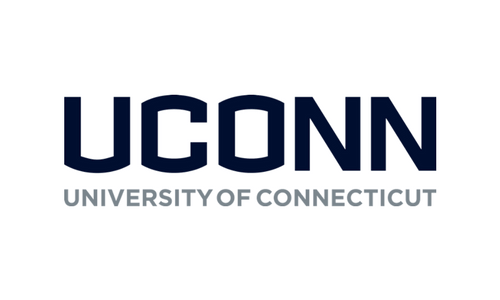
Graduate Tuition/Fees : $16,810
University of Connecticut offers an educational technology online master’s degree for individuals seeking an advanced degree to prepare them with the skills to integrate and create technology used in a variety of learning institutions and contexts. The University of Connecticut program offers a unique delivery methodology known as the “Two Summers Program” where students spend one week during the first year and one week during the second year on the UConn campus working with faculty and classmates in state of the art labs. The one-week experiences take place during two consecutive summers. All of course programming is completed online. Admission standards include personal statement, three letters of recommendation, resume or CV, and unofficial transcripts. U.S. News ranks University of Connecticut #56 in national universities.
#27 – University of Hawaii
Online master’s in learning design and technology, honolulu, hawaii.

Graduate Tuition/Fees : $16,190
University of Hawaii offers an online master’s in educational technology for individuals seeking an advanced degree in preparation for a career in the development and integration of technology into educational settings such as public and private schools. Graduates go on to careers as teachers, technology consultants, game designers, and a variety of leadership positions. The University of Hawaii program is delivered entirely online except for two on-campus weekend sessions occurring in the first semester. The degree can be completed in two years. Courses include educational technology and research, instructional design and development, and theory and practice in educational design. U.S. News ranks UH #159 in national universities.
#26 – Concordia University
Online master’s in educational technology and leadership, river forest, illinois.

Graduate Tuition/Fees : $15,360
Concordia University Chicago offers an educational technology online master’s degree designed to be completed in 24 months. The program focuses on integrating technology into the K-12 classroom to enhance teaching and learning. The program not only focuses on software development, but hardware maintenance and IT infrastructure. The program’s pedagogical philosophy conflates theory and best practices along with emerging trends in educational technology, ensuring students get an up-to-date education that is current with industry and employer standards. The program is designed for currently licensed teachers seeking to become technology specialists, technology designers, and directors within the educational system. U.S. News ranks Concordia University Chicago #75 in regional universities Midwest.
#25 – Virginia Polytechnic Institute and State University
Online master’s in education, curriculum and instruction, blacksburg, virginia.
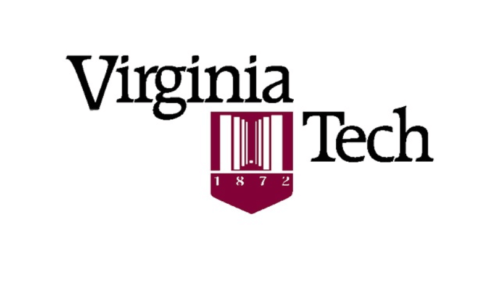
Graduate Tuition/Fees : $15,072
Virginia Tech offers a master’s in educational technology online through its Department of Learning Sciences and Technologies. The program focuses on meeting the technology needs of K-12 educators, higher education professionals, and professionals outside of education such as corporate trainers. The degree program is 30 credits and can be completed on a full-time or part-time basis depending on the needs of the student. Admission requirements include a 3.0 undergraduate GPA, completed application, and transcripts. The program does not require letters of recommendation or GRE scores. Students with less than a 3.0 GPA may be given provisional admittance. Courses include foundations of instructional design, interactive learning media design, program and product evaluation, and visual literacy. U.S. News ranks Virginia Tech #69 in national universities.
#24 – University at Buffalo
Online master’s in education and technology, buffalo, new york.

Graduate Tuition/Fees : $13,384
University of Buffalo offers an online master’s in educational technology through its Department of Learning and Instruction designed for individuals seeking career options that include instructional designers, college instructors, education technology specialists, program developers, and corporate trainers. The 33-credit program is delivered online and can be finished in just three semesters. Courses include digital media in education, introduction to educational technology, philosophy of technology, and technology as social practice. Application materials include a completed application, unofficial transcripts, two letters of recommendation, and statement of purpose. U.S. News and World Report ranks University of Buffalo #97 in national universities and #15 in best online graduate educational programs.
#23 – Webster University
Saint louis, missouri.

Graduate Tuition/Fees : $13,140
Webster University offers a master’s in educational technology online through its School of Education. The online degree is designed to align with the International Society of Technology in Education standards and is well suited for corporate and military trainers as well as K-12 and college educators. Courses within the program include desktop publishing for educators, graphic design for educators, curriculum design technology apps, and technology ethics and society. Admission standards include a bachelor’s degree, undergraduate GPA of 2.5 or higher, and a personal essay. The program does not require GRE or other standardized test scores. U.S. News ranks Webster #23 in regional universities Midwest.
#22 – Ohio State University
Online master’s in learning technologies, columbus, ohio.

Graduate Tuition/Fees : $12,425
The Ohio State University offers educational technology online programs for individuals seeking potential career paths in a wide variety of teaching and training IT positions and contexts. Graduates go on to work for public school systems, not-for-profit organizations, and corporate entities where integrating technology helps to teach and train stakeholders, customers, and students. The 30-credit program is divided into seven core courses, one research course, one elective course, and a 3-credit capstone. Classes include applied instructional design, computer supported collaborative learning, designing multimedia for instruction, and introduction for developing educational websites. U.S. News and World Report ranks The Ohio State University #54 in national universities and #157 in online graduate education programs.
#21 – Brandman University
Online master’s in instructional technology, irvine, california.
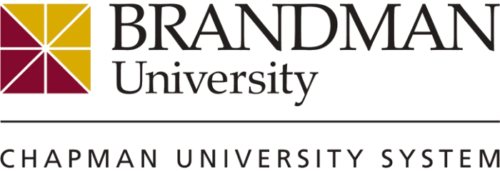
Graduate Tuition/Fees : $11,880
Brandman University offers educational technology online programs to prepare educators to effectively integrate technology into the classroom with the goal of enhancing teaching and learning. The program is built to reflect the standards of the National Council for Online Learning. The program is delivered via Brandman’s School of Education, which is accredited by the National Council for Accreditation of Teacher Education (NCATE). Core courses include democracy education and social change, research and evaluation methods, seminar in comparative education, and seminar in the social foundations of education. U.S. News and World Report ranks Brandman University #115 in best online graduate education programs.
#20 – Florida State University
Online master’s in instructional systems and learning technology, tallahassee, florida.
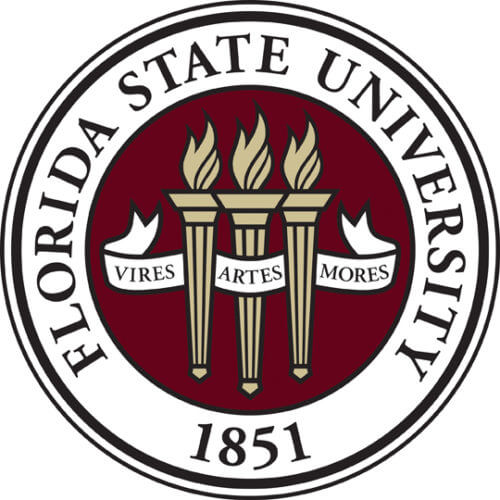
Graduate Tuition/Fees : $11,553
Florida State University offers an online master’s in educational technology designed for individuals seeking the training and education in developing and integrating technology into a variety of learning environments from classrooms to corporate training boardrooms. The 36-credit program can be completed in two years and includes 18 core credits, 15 elective credits, and 3 capstone course credits. Core credits include classes such as introduction to instructional systems and learning technologies, inquiry and measurement, theories of learning and cognition in instruction, and trends and issues in instructional design. Admission requirements include bachelor’s degree, 3.0 GPA in upper-division courses, 50th percentile or above on GRE, and 3.5 or higher on analytical writing GRE. U.S. News ranks Florida State #81 in national universities.
#19 – North Carolina State University
Online master’s in technology education, raleigh, north carolina.

Graduate Tuition/Fees : $11,027
North Carolina State University’s master’s in educational technology online is designed for students to become master technology teachers, trainers, or administrators with skills and knowledge of emerging trends in educational technology platforms and hardware. Graduates may be qualified for positions as teachers, trainers, administrators, or technology managers. The 33-credit hour program is delivered online and includes courses such as curricula for emerging technologies, foundations for teaching technology, developing and implementing technology education, and instructional design in technical and technology education. Admission requirements include bachelor’s degree, 3.0 minimum GPA, three professional references, and statement of career goals. U.S. News ranks North Carolina State #81 in national universities and #4 in online graduate computer information technology programs.
#18 – University of Georgia
Online master’s in learning, design, and technology, instructional design and development, athens, georgia.

Graduate Tuition/Fees : $10,970
University of Georgia provides an educational technology online master’s with an emphasis in technology design and development that prepares individuals to work in a variety of environments as adept instructional designers. Through its College of Education, the program provides an online master’s degree accredited by the National Council for Accreditation of Teacher Education and Council for the Accreditation of Educator Preparation. The 36-credit program will allow a maximum of nine transfer credits. Courses within the curriculum include emerging approaches in teaching learning and technology, introduction to instructional design, and research methods in instructional design. U.S. News ranks University of Georgia #54 in national universities.
#17 – Indiana University
Online master’s in instructional systems technology, bloomington, indiana.

Graduate Tuition/Fees : $10,279
Indiana University provides a master’s in educational technology online designed to teach students how to develop and implement teaching and learning technologies to improve learning outcomes across a variety of institutions and sectors including education, private business, military, and non-profit. The 36-credit degree includes 15 core credits, 12 specialization credits, and 9 credits outside the major. Graduates may choose from a variety of career trajectories and occupations such as instructional designer, corporate trainer, online learning specialist, software consultant, or a variety of managerial and leadership positions within an IT context. U.S. News and World Report ranks Indiana University #90 in national universities and #46 in best online graduate education programs.
#16 – University of Northern Iowa
Cedar falls, iowa.

Graduate Tuition/Fees : $10,193
University of Northern Iowa provides students with educational technology online programs towards the completion of a terminal master’s degree with an emphasis on instructional design and integration across a variety of learning contexts including public and private education, corporate training, military, and not-for-profit. The degree is offered online through Northern Iowa’s Black Board learning management system and also includes live lectures delivered in a synchronous format on Thursday evenings. Courses start in the summer semester and include exploring issues and trends in instructional technology, developing and designing online learning, planning and producing instructional media, and using digital and social media in education. U.S. News ranks UNI #25 in regional universities Midwest.
#15 – Iowa State University

Graduate Tuition/Fees : $10,078
Iowa State University, through its School of Education, offers an online master’s in educational technology designed for current classroom teachers desiring to advance their career with a master’s degree specializing in integrating technology into their own classrooms and institutions. The program is 30 credits and is typically completed in three years. Courses include designing effective learning environments, foundations of digital learning, multicultural foundations of school and society, and principles and practices of flexible and distance learning. Admission requirements include transcripts, personal statement, three letters of reference, and a current resume. U.S. News and World Report ranks Iowa State #115 in national universities.
#14 – Texas A & M University
College station, texas.

Graduate Tuition/Fees : $9,065
Texas A&M University provides an educational technology online master’s degree program for individuals seeing to become technology and education experts in their particular industry and setting. The degree’s skills and knowledge can be applied across a variety of contexts including public education, higher education, government and military, private organizations, and non-profit entities. Graduates can choose several career paths including teacher, instructional designers, consultants, and administrators. The curriculum is delivered online for maximum flexibility and includes educational psychology, integrating technology in learning environments, measurement and evaluation in education or techniques in research, and review of research in educational technology. U.S. News ranks Texas A&M University #69 in national universities.
#13 – The University of West Florida
Online master’s in instructional design and technology, pensacola, florida.

Graduate Tuition/Fees : $9,062
University of West Florida provides educational technology online programs designed to meet the complex learning and training needs of a variety of institutions across multiple industries. The degree is delivered entirely online and can be completed in only 24 months. Students can choose from two concentration areas including human performance technology or distance learning. Admission requirements include a bachelor’s degree from an accredited institution, minimum 3.0 GPA in last 60 credit hours, transcripts, GRE scores if GPA lower than 3.0, and a letter of recommendation. Core courses include advanced instructional design theory, applied instructional technology investigations, foundations of instructional technology, implementation of instructional technology projects, and principles of instructional design. U.S. News ranks UWF #231 in national universities.
#12 – University of Central Florida
Orlando, florida.

Graduate Tuition/Fees : $8,872
University of Central Florida provides educational technology online programs for individuals seeking a terminal master’s degree that teaches the knowledge and skills needed to design and implement technology across a variety of learning platforms and institutions. Additionally, the degree will prepare students to work in a wide spectrum of sectors including public education, postsecondary education, private business, government, non-profit, and military. Delivered through its College of Education and Human Performance, the career opportunities include educational specialist, instructional designer, technology consultant, IT manager, and more. U.S. News and World Report ranks University of Central Florida #171 in national universities and #89 in best education schools.
#11 – Liberty University
Lynchburg, virginia.

Graduate Tuition/Fees : $8,723
Liberty University provides an online master’s in educational technology accredited by the National Council for Accreditation of Teacher Education. The degree is specifically designed for individuals seeking to leverage technology development, design, and integration into their classrooms to increase teaching and learning outcomes in a K-12 environment. Featured courses within the curriculum include behavior management, exceptionality, elementary curriculum and methods, and understanding educational research and assessment. Other coursework within the technology and online learning specialization are foundation of educational technology and online learning, leadership in educational technology, and technology practices for instructional improvement. U.S. News and World Report ranks Liberty University #231 in national universities.
#10 – University of Arkansas
Fayetteville, arkansas.

Graduate Tuition/Fees : $8,571
University of Arkansas offers a master’s in educational technology online for individuals seeking an advanced degree preparing them with the skills and knowledge needed to work in instructional design, learning technologies, and distance learning. The 34-credit program can be completed in 1.5 years with students given a total of six years to finish. The degree does not require a thesis or any standardized tests such as the GRE, MAT, or GMAT. Offered through the University of Arkansas College of Education and Health Professions, students can matriculate to the program fall, summer or spring. U.S. News and World Report ranks University of Arkansas #133 in national universities and #56 in best online graduate education programs.
#9 – Mississippi State University
Mississippi state, mississippi.

Graduate Tuition/Fees : $8,318
Mississippi State University offers an educational technology online master’s degree for individuals seeking a career that blends information technology, design, teaching, and training. Graduates from this program may qualify for careers in K-20 education, corporate training, military training, and non-profit consulting/training. Careers may include distance learning specialist, instructional designer, multimedia design, training specialist, and more. Admission requirements include transcripts, three letters of recommendation, statement of purpose, and GRE scores. Depending on the application packet content, students may receive full admission, provisional admission, or contingent admission. Not all students are accepted into the program. Students can chose from concentration areas within the degree, which include distance education, instructional design, and multimedia. Core courses offered are directed project and portfolio development, foundations of instructional systems and technology, and multiple perspectives on instructional technology. U.S. News ranks MSU #171 in national universities.
#8 – Oklahoma State University
Stillwater, oklahoma.

Graduate Tuition/Fees : $8,197
Oklahoma State University offers an online master’s in educational technology designed for educators to become specialists in educational technology design and integration. The program’s curriculum is designed for public, private, and postsecondary institutions as well as corporate settings. Admission criteria include minimum 3.0 GPA, personal statement, three letters of recommendation, and transcripts. The vast majority of courses are offered online, with some requiring face-to-face interaction at the Tulsa or Stillwater campuses. Classes include advanced computer applications, digital media production, foundations of educational technology, and learning in the digital age. U.S. News and World Report ranks Oklahoma State University #156 in national universities.
#7 – Appalachian State University
Boone, north carolina.

Graduate Tuition/Fees : $7,899
Appalachian State University provides educational technology online programs for students seeking a master’s degree from a regionally accredited institution that delivers high quality online degrees. The educational technology program offers four concentration areas including K-12, Online learning and Professional Development, New Media Literacies and Global Perspectives, and a general concentration. Core courses required in all concentrations include applications of digital technologies, digital learning environments in a changing society, new media and emerging literacies, and utilizing networking and communications technologies for learning. Students can also take classes towards three post-master’s certificates that count towards the doctoral program. U.S. News ranks Appalachian State #9 in regional universities South.
#6 – University of Alabama
Online master’s in instructional design and development, birmingham, alabama.

Graduate Tuition/Fees : $7,866
University of Alabama Birmingham offers an educational technology online master’s with the goal of training students to become qualified instructional designers who develop, integrate, and analyze software and hardware solutions geared towards increasing learning and training outcomes across a variety of organizations such as public and private schools, government agencies, non-profits, and postsecondary institutions. The 30-credit program can be completed entirely online with students taking two 3-credit courses per 7-week semester. Classes include alternate instructional design and development models, assessment and evaluation in instructional design and development, performance systems technology, and trends and issues in instructional design and technology. U.S. News ranks UAB #159 in national universities.
#5 – Texas Tech University
Lubbock, texas.

Graduate Tuition/Fees : $7,849
Texas Tech University offers a master’s in educational technology online consisting of 39-credit hours that is typically completed in two years with a course schedule of two classes per semester. Students are not required to take two classes per term and can choose their course load according to their specific needs. The admission process is viewed holistically and requires students to send in transcripts and a completed application approximately two months prior to the start of the intended matriculation date. GRE scores are not required, but applicants are highly encouraged to send them in. Core classes include cultural foundations of education, educational psychology, history of education, and philosophy of education. U.S. News ranks Texas Tech #176 in national universities.
#4 – University of North Carolina
Charlotte, north carolina.

Graduate Tuition/Fees : $7,357
University of North Carolina Charlotte provides educational technology online programs for developing leaders within the educational and training technology space. Graduates often go on to work in K-20 educational organizations, governmental agencies or private corporations. The UNCC program is 36 credits and offers the following areas of specialization: school specialist, training and development, and online learning and teaching. The program holds national recognition from the Association for Educational Communications and Technology (AECT). The admission requirements include a bachelor’s degree from a regionally accredited school, minimum 2.75 GPA, statement of purpose, three letters of recommendation, and GRE/MAT scores. U.S. News ranks UNCC #21 in best online graduate education programs.
#3 – East Carolina University
Greenville, north carolina.
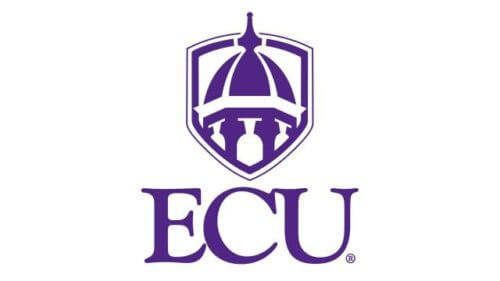
Graduate Tuition/Fees : $7,270
East Carolina University provides an educational technology online master’s degree for working individuals seeking advanced education and training in preparation for a career in instructional technology. The degree is designed for individuals to work in the P-12 school system and leads to licensure in the state of North Carolina as an educator with expertise integrating computer systems and software in the classroom. Possible career paths include technology director, e-learning specialist, distance learning consultant, and more. Classes include digital literacy for the 21st century, introduction to instructional technology, and principles of instructional design. U.S. News and World Report ranks East Carolina University #207 in national universities and #18 in best online graduate education programs.
#2 – Western Governors University
Online master’s in learning and technology, salt lake city, utah.

Graduate Tuition/Fees : $6,790
Western Governors University offers a master’s in educational technology online designed to teach and train students in preparation for careers in technology, education, and training. The WGU program consists of 12 courses divided into five competency areas including capstone, instructional design, research, research fundamentals, and technology integration. Classes within the instructional design competency include foundations of instructional design, instructional design analysis, instructional design production, and issues in instructional design. The program is taught online with the exception of a few in-class experiences and demonstrations. WGU courses are assessed on competency-based education rather than traditional metrics used in higher education. Admission requirements include a bachelor’s degree from an accredited institution as well as access to a community of learners in the student’s community.
#1 – The University of Texas Rio Grande Valley
Edinburg, texas.
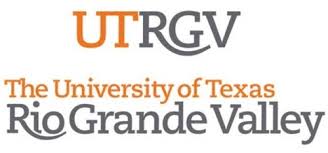
Graduate Tuition/Fees : $6,719
The University of Texas Rio Grande Valley provides an online master’s in educational technology that can be completed in as few as 36 months. The program consists of 27 core credits and nine specialty credit hours. The program is specifically designed to train and educate students on integrating and applying technology within a classroom or a campus setting. Core required courses include educational communications, introduction to historical and sociocultural foundations of education, instructional design, and research methods in education. Students can matriculate in fall, spring or summer semester. Admission requirements include a 3.0 GPA in last 60 credit hours of undergraduate education, GRE scores of 150V, 141Q, and 4.0 AW if less than a 3.0 GPA, and a current resume. U.S. News ranks UTRGV #231 in national universities.
Related Resource: ‘
- 5 Educational Technology Career Options
- 5 Educational Technology Podcasts
- 5 Great Educational Technology Concepts
- Top 30 Most Affordable Master’s in Career and Technical Education Online Programs
- 40 Accelerated Online Master’s in Elementary Education Programs
© 2023 BestCollegesOnline.org, a Red Ventures company | Cookie Settings | Do Not Sell or Share My Personal Information
- Skip to primary navigation
- Skip to main content
CollegeRank.net
Best College Rankings
Best Master’s in Educational Technology
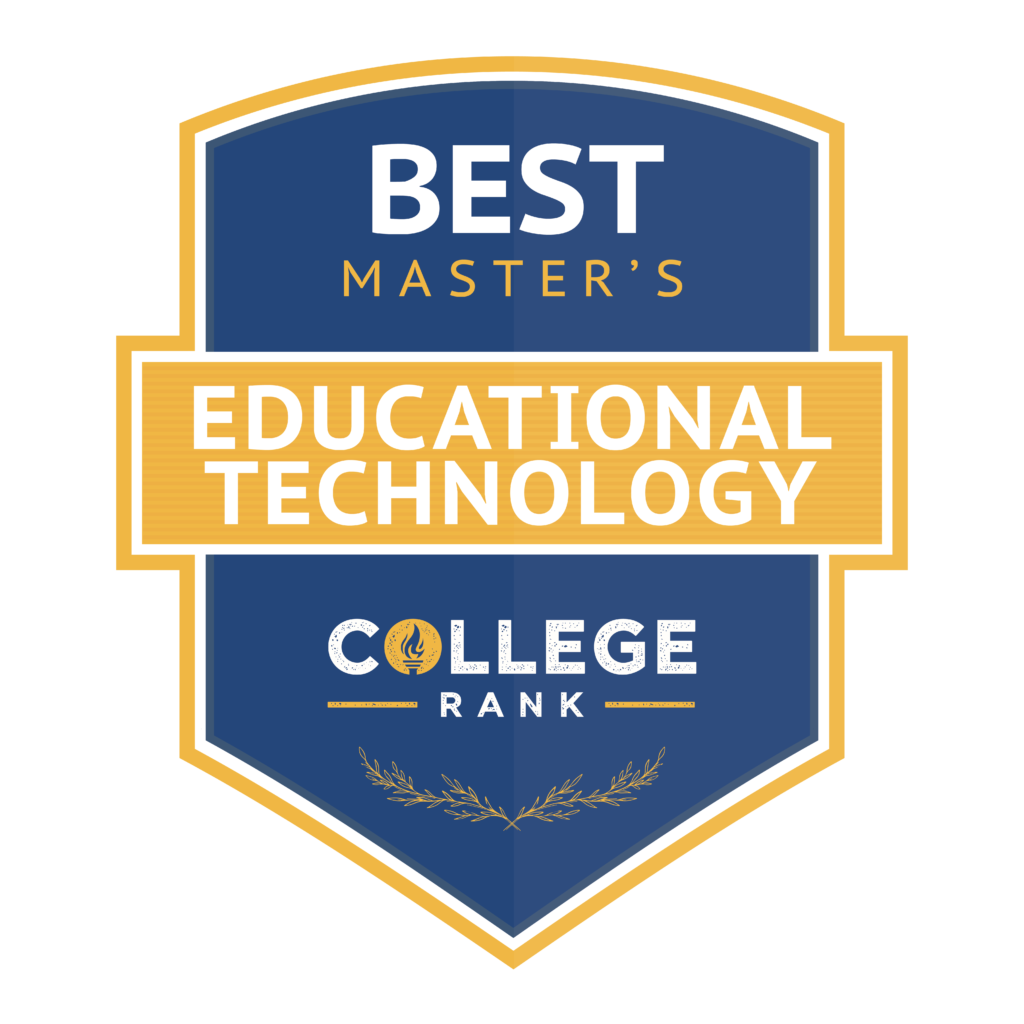
Quick Highlights:
- Our #1 ranking college for a master’s in educational technology is Pennsylvania State University , followed by Arizona State University .
- Technology in classrooms aims to improve American education rankings .
- Teachers need advanced training to effectively use educational technology.
- Online master’s programs in educational technology offer flexibility and affordability .
- Programs help educators integrate, advocate, and use technology in lesson plans .
For decades, an effort has been underway to transform the American education system and restore its top rankings among international peers. Many of these efforts focus on incorporating innovative new technologies into the typical classroom, allowing students to interact with materials and master key skills in new ways.
In order to properly employ technology, however, teachers often require the intensive training and specialization of a graduate degree in educational technology. These programs teach educators how to work with technology, integrate it into existing lesson plans, and adhere to best practices for security and privacy.
There are many programs available to educators seeking expertise in today’s leading classroom technologies, but online programs are easily the most flexible. With that said, flexibility is not the only measure of a program’s suitability. To help educators get the best education possible, the top 20 online programs in educational technology have been ranked according to their overall affordability, their flexibility, and their overall prestige.
Of these three categories, each school’s prestige and flexibility are weighted heaviest when determining the best online master in education technology. Affordability is less heavily weighted in this list, primarily due to the tuition reimbursement programs available to teachers at most of the nation’s public and private schools.
Related (Campus):
- Best Curriculum and Instruction Master’s Programs
- Top School Administration Master’s Degrees
- Top Master’s in Education Technology
- Best Schools for Educational Counseling Master’s Programs
- Best Colleges for Early Childhood Education Master’s
- Top Education Master’s Programs
- Best Educational Leadership Master’s Programs
Related (Online):
- Top Online Curriculum and Instruction Master’s Degrees
- Top Online Schools for a Master’s in Early Childhood Education
Pennsylvania State University
$1017/ credit
Master of Education in Learning, Design, and Technology
Penn State consistently ranks as one of the best national universities in the country, one of the best public universities in the country, and one of the best schools for educators at both the graduate and undergraduate levels. Penn State World Campus, the online arm of this prestigious public institution, is also consistently ranked by U.S. News and World Report as one of the top 10 online programs nationwide. The university is also home to the best online masters in education technology.
The graduate program in educational technology requires 15 foundational course credits, 12 advanced course credits, and six elective credits. The program is one of the few online that focuses on emerging educational technologies, integrating mobile technologies into the modern classroom, and turning everyday tech into instructional tools.
Educators who are looking for an edge over their peers regarding both tech proficiency and integrating emerging technologies into the classroom have no better option than this degree from one of the country’s most storied public universities.
Arizona State University
$12,562 (in-state)
Online Master of Education in Learning Design and Technologies
Arizona State University is one of the best schools in the nation, public or private, for educators in all degree programs. U.S. News and World Report ranks the school as having the 18th best education program in the nation, alongside top marks as both a national and public university.
Arizona State University also has one of the most affordable tuition rates among online education programs and has a flexible, year-round academic calendar that allows teachers to enroll in its technology education program in either January, June, or September.
In the classroom, the ASU program in educational technology requires 33 credits and gives students the unique option of aligning their M.A. in educational technology with a concentration in gifted instruction. This unique combination teaches educators how to incorporate technology into everyday instruction as well as how to meet the needs of both advanced and special education students throughout the academic year.
Virginia Tech University
$15,234 (in-state)
Instructional Design and Technology (IDT) (M.A.E.D.)
Virginia Tech is an excellent option for educators interested in incorporating technology into the classroom. Unlike most other schools, the educational technology program at Virginia Tech focuses on the advanced IT skills needed to run a high-tech classroom or school building. Students will learn the basic setup of networks, several organization-level educational software tools, and the ethics associated with high-tech privacy and monitoring.
Ranked in the top 75 national universities by U.S. News and World Report, Virginia Tech is also among the top 25 public universities in the United States and ranks in the top 200 for its online graduate education programs.
North Carolina State University
$574.28/ credit (in-state)
Learning Design and Technology
North Carolina State University is an integral part of the “Research Triangle” in Raleigh-Durham, NC. Ranked 92nd among all national universities, NC State also ranks in the top 200 online graduate education programs nationwide. The school’s affordable in-state tuition ensures an affordable education for North Carolina residents.
Unlike most of its competitors, NC State offers both an M.Ed. and an M.S. in educational technology. The shorter M.Ed. The program requires just 30 credits and is a perfect fit for aspiring educators, while the M.S. requires 36 credits and is a perfect fit for aspiring administrators.
University of Missouri
$9,000-$18,000 (in-state)
MS Learning Technology and Design
The University of Missouri’s graduate program in educational technology might be the most flexible online program of them all. The 30-credit program requires only 12 credits of core curriculum. Students can then choose 18 credits, or six courses, of elective work that fits their unique instructional needs.
The primary focus of the program is on education modernization, but electives allow students to focus on integrating technology into mathematics, reading, writing, science, and foreign languages as well.
In addition to being a highly flexible program, the in-state tuition for Missouri residents makes it an affordable choice. U.S. News and World Report ranks Mizzou as one of the top 50 public institutions in the country, one of the top national universities, and one of the top schools for online graduate education.
University of San Diego
MED Technology and Innovation
The University of San Diego is one of the leading private, Catholic-affiliated universities on the West Coast, with a reputation for academic excellence that has been acknowledged nationwide. To that end, U.S. News and World Report ranks the school in the top 100 national universities. The online graduate education programs offered at USD are also highly ranked, within the top 65 programs across the country.
The school has earned a top ranking for its academic flexibility as well, particularly when it comes to meeting the needs of veterans, professionals, and online students.
A total of 27 core credits are required of students in this program in topics that range from mastery of the Internet to modernization of teaching methods and planning styles. Two elective courses, totaling six credits, help students master the implementation of technology in their area of instructional expertise. With affordable tuition and a year-round calendar, the school is an excellent fit for the typical teacher’s scheduling needs.
Purdue University
$450/ credit
Master’s of Learning Design and Technology
Considered one of the best private universities in the Midwest, Purdue University is consistently ranked as a top national university by U.S. News and World Report. The university has also earned accolades for the quality of its online programs, the quality of its education programs specifically, and its flexibility for veterans and others who study online.
Purdue’s Master of Science program in education offers a combined concentration in learning design and technology, giving students the ability to master both lesson planning and today’s technology.
Within the program, students will take 33 credit hours that focus on lesson planning, distance education, technology ethics and privacy guidelines, and technology advocacy within the education system. Students can also opt for an elective course in tech leadership, which could prepare them for administrative roles in their public or private institutions.
Post University
$629/ credit
Master’s of Education (Learning and Design Concentration)
Post University, located in Connecticut, offers a wide array of online programs to educators, including one that blends instructional design with educational technology. The concentration is part of the university’s M.A. in education, which is consistently ranked as a “best value” by several leading publications.
Post University is also ranked as a top regional institution in the United States, offering highly affordable tuition rates to students at both the graduate and undergraduate levels. As a private university, these tuition rates are uniform for both in-state and out-of-state online enrollees.
Within Post’s concentration in instructional design and educational technology, students will take several unique courses. These unique courses include topics like educational reform, technology advocacy, and distance education course design. Graduates will be prepared to teach in a traditional classroom as well as in several online, interactive environments, like Blackboard Lean and Schoology.
Western Governors University
$16,700 (total cost)
Educational Technology and Instructional Design Master’s
Western Governors University gets its name from the many governors who came together to form the university several decades ago. The original mission of the university was to create a highly affordable, top-ranked, and flexible institution that could guide adult learners toward earning undergraduate and graduate degrees.
Today, the institution ranks as one of the best and most affordable online universities in America, according to U.S. News and World Report.
Some educators may find themselves able to complete the school’s graduate program in educational technology within a single year. The program’s focus is rather broad, with coursework that focuses on technology integration and advocacy, and ethical deployment of high-tech tools in today’s schools.
The University of Illinois at Urbana-Champaign
$520/ credit
Online Master’s of Education (Instructional Design, Technology and Leadership Concentration)
UIUC is the flagship campus of the University of Illinois System and easily the flagship public university in the state of Illinois itself.
Additionally, the school is often listed as one of the “Public Ivies” due to its highly selective admissions and excellent academic reputation across the country. Urbana-Champaign typically ranks in the top 20 public universities and among the top 30 national universities, according to U.S. News and World Report. The school’s online education effort is considered one of the ten best in the nation, according to the same publication.
Unique among online programs in educational technology, Urbana-Champaign’s program is centered on how to promote education reform by using high-tech tools. Students learn how to transform lesson plans, adopt new styles of instruction, and incorporate mobile devices into a hands-on, 24-hour learning environment that today’s students are most comfortable with. The 32-credit program is highly affordable, with in-state tuition available to Illinois residents.
George Washington University
$975/ credit
Master’s Educational Technology Leadership
In the online classroom, educational technology students will focus on incorporating technology into the classroom, advocating for educational technology, using technology to solve human resources, ethics, and behavioral problems in schools, and distance education.
This program, with a relatively affordable tuition rate, equips graduates to be better teachers, instructional designers, and online “cyber school” instructors through 36 credits of advanced curriculum.
Located in the heart of the nation’s capital, George Washington University is one of the top private schools in the nation. Of particular note to educators are the school’s 100 research centers in science, technology, instruction, and many other fields. The university is ranked as one of the best schools for research, as well as a leading national university and one of the best schools for online graduate and undergraduate degree programs.
University of Florida
$734/ credit
Educational Technology Graduate Programs
Considered the flagship public university in the state of Florida, the University of Florida is a land-grant, sea-grant, and space-grant institution. In fact, it’s one of the only universities in the United States to hold this distinction.
The University of Florida is also considered one of the top 50 national universities, one of the top public universities, and one of the best schools for online education nationwide, according to U.S. News and World Report.
The graduate program in educational technology at UF is focused primarily on distance education, high-tech instruction, and building online communities. Educators can also choose electives that focus on gifted instruction via technology, instruction design, and integrated media and communications in the classroom. The school offers both in-state and out-of-state tuition rates that make it a top choice for Florida residents.
Drexel University
$1111/ credit
Online Master’s in Educational Technology
Based in Philadelphia, Drexel University is a leading institution for high-tech degree programs and hands-on experience. Drexel is top-ranked by U.S. News and World Report for its co-op program, where students spend three months of each academic year working in a professional position related to their field of study.
With the school’s quarter-based academic calendar and an all-online list of graduate courses, the school’s flexibility makes it possible to complete the program in as little as two years. Students can also add internships and co-ops, extending their enrollment duration by up to a year as they pursue professional experience in the field.
Northern Arizona University
$11,846 (in-state)
Educational Technology , Master of Education
At 30 credit hours, the M.A. program in educational technology at Northern Arizona University is one of the shortest in the country. Despite its shorter length, however, the program has innovative course offerings that most educators will enjoy.
The school’s primary focus within this program is not on technology proficiency but instead on building a curriculum around technologies and encouraging the creation of vibrant, tech-focused student communities. The program is a great foundation for teaching online or for moving many components of the teaching process online.
Northern Arizona University is ranked as one of the best regional public institutions in the southwestern part of the United States. The school’s online education programs are also ranked in the top 100 programs nationwide and offer students a highly affordable, in-state tuition rate that is much lower than other regional institutions in Arizona and neighboring states.
University of Cincinnati
$746 (resident)
Master of Education Instructional Design and Technology
The University of Cincinnati is one of Ohio’s most competitive public universities, with a top-ranked national reputation in both academics and athletes. The school itself ranks in the top 50 national universities, according to U.S. News and World Report. More specifically, its online education degrees rank in the top 30 nationwide.
The school is also ranked as one of the best for veterans, with a highly flexible academic calendar that allows students to “enter and exit” the program as time permits.
The school’s focus on educational technology lies within its M.A. in educational leadership. Within this program, students can choose and educational technology concentration that teaches them how to both integrate technology into the classroom and how to advocate for greater use of technology in an entire school or school district. The program requires 33 credits and, for Ohio residents, offers in-state tuition that represents significant cost savings.
This ranking was first published in 2016 and updated in 2024.
Educational Technology Graduate Programs in America
1-25 of 254 results
Harvard Graduate School of Education
- Cambridge, MA ·
- Harvard University ·
- Graduate School
- · Rating 4.79 out of 5 19 reviews
Harvard University, Graduate School, CAMBRIDGE, MA. 19 Niche users give it an average review of 4.8 stars. Featured Review: Master's Student says Harvard provides an exceptional student educational experience. The professors and class content is exactly what I needed, providing thought provoking assignments along with engaging instruction. ... Read 19 reviews.
- Philadelphia, PA ·
- University of Pennsylvania ·
- · Rating 3 out of 5 5 reviews
Blue checkmark. University of Pennsylvania, Graduate School, PHILADELPHIA, PA. 5 Niche users give it an average review of 3 stars. Featured Review: Master's Student says I loved my graduate program at Penn. Learning along side top notch professors from Wharton, Graduate School of Education and Design school, I had a diverse and interdisciplinary education that will... Read 5 reviews.
Graduate School of Arts & Sciences - Georgetown University
- Nw Washington, DC ·
- Georgetown University ·
- · Rating 5 out of 5 2 reviews
Georgetown University, Graduate School, NW WASHINGTON, DC. 2 Niche users give it an average review of 5 stars. Featured Review: Master's Student says The program is highly practical. The professors explain concepts in class and give us home works to submit on each topic discussed on a weekly basis. This enables us to grasp the concepts more. We... Read 2 reviews.
University of Houston - Clear Lake
- Graduate School ·
- HOUSTON, TX
- · Rating 4.66 out of 5 77
Point Loma Nazarene University
- SAN DIEGO, CA
- · Rating 4.52 out of 5 184
College of Letters, Arts and Social Sciences - California State University - East Bay
- California State University - East Bay ·
- HAYWARD, CA
- · Rating 3.5 out of 5 2
JHU School of Education
- Baltimore, MD ·
- Johns Hopkins University ·
- · Rating 4.59 out of 5 22 reviews
Johns Hopkins University, Graduate School, BALTIMORE, MD. 22 Niche users give it an average review of 4.6 stars. Featured Review: Master's Student says Generally very positive. Had to fend for my self on many occasions s the faculty was quite busy. However, the quality of the faculty was very impressive and the curriculum was rigorous. Read 22 reviews.
Steinhardt School of Culture, Education, and Human Development
- New York, NY ·
- New York University ·
- · Rating 4.35 out of 5 31 reviews
Blue checkmark. New York University, Graduate School, NEW YORK, NY. 31 Niche users give it an average review of 4.4 stars. Featured Review: Master's Student says The faculty are diverse in cultural background, education, race, gender and are on your side. The students are also very diverse and are allowed to create the best pathway to achieve what they are... Read 31 reviews.
Lehigh University Graduate College of Education
- Bethlehem, PA ·
- Lehigh University ·
- · Rating 5 out of 5 1 review
Blue checkmark. Lehigh University, Graduate School, BETHLEHEM, PA. 1 Niche users give it an average review of 5 stars. Featured Review: Master's Student says The best part of my experience is that it is online and to apply we did not need to complete an essay. The teachers provide a lot of guidance and assistance. The Lehigh University Graduate PACE... Read 1 reviews.
- Find college scholarships
University of Georgia College of Education
- Athens, GA ·
- University of Georgia ·
- · Rating 4.5 out of 5 6 reviews
Blue checkmark. University of Georgia, Graduate School, ATHENS, GA. 6 Niche users give it an average review of 4.5 stars. Featured Review: Doctoral Student says This program has challenged me in many ways, both positively and negatively; however, even the negative experiences have assisted my personal and professional growth for the better. The best parts of... Read 6 reviews.
Warner School of Education and Human Development
- Rochester, NY ·
- University of Rochester ·
- · Rating 4 out of 5 1 review
Blue checkmark. University of Rochester, Graduate School, ROCHESTER, NY. 1 Niche users give it an average review of 4 stars. Featured Review: Master's Student says The inclusion classes are great. Some of the professors exhibit some microaggressions, but for the most part the education is good. It is a smaller school, so everybody knows each other, which can be... Read 1 reviews.
David O. McKay School of Education
- Provo, UT ·
- Brigham Young University ·
Brigham Young University, Graduate School, PROVO, UT.
Penn State College of Education
- University Park, PA ·
- Penn State ·
Penn State, Graduate School, UNIVERSITY PARK, PA. 2 Niche users give it an average review of 5 stars. Featured Review: Doctoral Student says Our instructional mission includes undergraduate, graduate, professional, continuing, and extension education offered through both resident instruction and distance learning. Our educational programs... Read 2 reviews.
College of Education and Human Development - Texas A&M University
- College Station, TX ·
- Texas A&M University ·
Texas A&M University, Graduate School, COLLEGE STATION, TX.
North Carolina State University College of Education
- Raleigh, NC ·
- North Carolina State University ·
- · Rating 4.8 out of 5 5 reviews
North Carolina State University, Graduate School, RALEIGH, NC. 5 Niche users give it an average review of 4.8 stars. Featured Review: Doctoral Student says North Carolina State College of Education, Through the Belk Center offers an Ed.D in Community COllege Leadership. Enrolled in a co-hort model. Great for working professionals Read 5 reviews.
- Sponsored Find Student Loan Options
- Music Teacher Education Graduate Programs
- Physical Education Teaching and Coaching Graduate Programs
College of Education - Michigan State University
- East Lansing, MI ·
- Michigan State University ·
Michigan State University, Graduate School, EAST LANSING, MI. 5 Niche users give it an average review of 4.8 stars. Featured Review: Master's Student says I am an MSU alum from the college of ed with a degree in Special and Elementary Education. I am currently completing my student teaching experience while beginning my master's in teaching and... Read 5 reviews.
Florida State University College of Education
- Tallahassee, FL ·
- Florida State University ·
- · Rating 4 out of 5 2 reviews
Florida State University, Graduate School, TALLAHASSEE, FL. 2 Niche users give it an average review of 4 stars. Featured Review: Master's Student says Florida State University Sport Psychology program is engaging and full of opportunities. The coursework is relevant and the faculty is a balance of tough yet understanding. The faculty members are... Read 2 reviews.
Indiana University School of Education
- Bloomington, IN ·
- Indiana University - Bloomington ·
Blue checkmark. Indiana University - Bloomington, Graduate School, BLOOMINGTON, IN. 2 Niche users give it an average review of 5 stars. Featured Review: Current Doctoral student says I am in the last year of my doctoral program. The coursework can be challenging and intense, but the professors are supportive. In the end of the program, an IU graduate can feel comfortable leading... Read 2 reviews.
College of Education and Human Development - University of Delaware
- Newark, DE ·
- University of Delaware ·
- · Rating 4.67 out of 5 6 reviews
University of Delaware, Graduate School, NEWARK, DE. 6 Niche users give it an average review of 4.7 stars. Featured Review: Alum says The University of Delaware Doctoral Program is a competitive program which prepares student's for future leadership writing, roles and experiences. The instructors are helpful, well-educated and... Read 6 reviews.
School of Education - Syracuse University
- Syracuse, NY ·
- Syracuse University ·
Syracuse University, Graduate School, SYRACUSE, NY. 1 Niche users give it an average review of 4 stars. Featured Review: Graduate Student says Professors are more than willing to help you most of the time. Not a lot of room to change up classes if you have a difficult personal life/schedule. Read 1 reviews.
Graduate School of Education and Psychology - Pepperdine University
- Los Angeles, CA ·
- Pepperdine University ·
- · Rating 4.67 out of 5 137 reviews
Blue checkmark. Pepperdine University, Graduate School, LOS ANGELES, CA. 137 Niche users give it an average review of 4.7 stars. Featured Review: Master's Student says I’m beginning my program in January 2025, but my experiences so far with Pepperdine have been wonderful. Upon admissions, their team is incredibly communicative with prospective students, and they... Read 137 reviews.
Auburn University College of Education
- Auburn, AL ·
- Auburn University ·
Auburn University, Graduate School, AUBURN, AL.
Jeannine Rainbolt College of Education
- Norman, OK ·
- University of Oklahoma ·
University of Oklahoma, Graduate School, NORMAN, OK. 2 Niche users give it an average review of 5 stars. Featured Review: Graduate Student says The University of Oklahoma offers excellent education programs and opportunities for its students. I have been able to obtain my Master of Human Relations and am now looking to obtain a Master of... Read 2 reviews.
School of Education and Health Sciences - University of Dayton
- Dayton, OH ·
- University of Dayton ·
- · Rating 5 out of 5 4 reviews
University of Dayton, Graduate School, DAYTON, OH. 4 Niche users give it an average review of 5 stars. Featured Review: Doctoral Student says The Ed.D. program is engaging and allows a student to examine organizational leadership through the lens of social justice and equity. The work is rigorous and rewarding. The people professors are... Read 4 reviews.
Mary Lou Fulton Teachers College
- Tempe, AZ ·
- Arizona State University ·
- · Rating 3.67 out of 5 3 reviews
Arizona State University, Graduate School, TEMPE, AZ. 3 Niche users give it an average review of 3.7 stars. Featured Review: Master's Student says Arizona State University online graduate program with Mary Lou Fulton Teachers College has been rigorous and demanding, yet affordable and timely. My professors and advisor has guided me with... Read 3 reviews.
College of Education - The University of Alabama
- Tuscaloosa, AL ·
- The University of Alabama ·
Blue checkmark. The University of Alabama, Graduate School, TUSCALOOSA, AL.
College of Education, Criminal Justice, and Human Services - University of Cincinnati
- Cincinnati, OH ·
- University of Cincinnati ·
- · Rating 4.67 out of 5 9 reviews
University of Cincinnati, Graduate School, CINCINNATI, OH. 9 Niche users give it an average review of 4.7 stars. Featured Review: Doctoral Student says The application process was easy and I was able to find help whenever needed to sign up for classes. I am excited to being my priming this Fall! Read 9 reviews.
College of Education - University of South Carolina
- Columbia, SC ·
- University of South Carolina ·
University of South Carolina, Graduate School, COLUMBIA, SC.
School of Education - William Jessup University
- Jessup University ·
- ROCKLIN, CA
California State University - East Bay
- · Rating 4.43 out of 5 51
College of Health and Social Sciences - San Francisco State University
- San Francisco State University ·
- SAN FRANCISCO, CA
- · Rating 4 out of 5 1
Showing results 1 through 25 of 254

IMAGES
COMMENTS
This graduate-level educational technology degree is tightly aligned with employer-desired skills for instructional designers. The program offers two tracks: the K-12 pathway and the Adult Learner pathway. Candidates may choose to complete both pathways if desired.
May 24, 2024 · If you graduate from a master’s in educational technology online program, you can pursue careers in fields including education, business, government, and the military. Any industry with a need for training or educating with technology can utilize the skills you learned in the master’s program.
Sep 3, 2024 · We scored 119 accredited, nonprofit colleges offering online master’s in educational technology degree programs in the U.S. using 16 data points in the categories of credibility,...
Dec 5, 2024 · Earn a master’s degree in educational technology from one of our best programs and become a dynamic leader in the technology field.
Jul 28, 2023 · Our guide lists the top online master's degrees in educational technology. Read on for information about costs, common classes, and how to become an educational technologist. We use trusted sources like the National Center for Education Statistics to inform the data for these schools.
Jul 1, 2019 · What are the Best Online Master's in Educational Technology Programs? JHU offers a master of science in education digital age learning and educational technology degree that prepares students to apply technology to high school, college, and business environments.
We reviewed 118 colleges and universities with online master’s in educational technology degree programs. We narrowed our pool of schools by selecting only colleges and universities that had received regional or national accreditation.
Teachers need advanced training to effectively use educational technology. Online master’s programs in educational technology offer flexibility and affordability. Programs help educators integrate, advocate, and use technology in lesson plans.
In this 30-credit master’s degree program, developed in collaboration with the Whiting School of Engineering and Kennedy Krieger Institute, students build the critical skillset to address both the technical and social challenges of technology in education—promoting innovation while considering broader societal impacts.
Master's Student: Harvard provides an exceptional student educational experience. The professors and class content is exactly what I needed, providing thought provoking assignments along with engaging instruction.